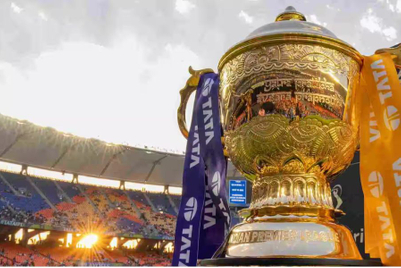
| PARTNER CONTENT |
As the world continues to grapple with the economic fallout from Covid and changes in consumer behavior, marketers are having to contend with not only shrinking budgets but also shifting consumption patterns. In many ways, Covid has only accelerated digital shifts that were in place before the pandemic hit. According to e-marketer*, digital spend has been rising by double-digit percentage points in the last few years.
To better understand how marketing priorities and budgets have shifted, and how marketers are engaging with consumers during this period, Campaign Asia partnered with GfK, one of the world’s leading marketing intelligence companies, for a survey and report, ‘Branding and Marketing in the New Abnormal’.
From July 27 - September 3, we surveyed 144 respondents across 13 regions in APAC.
Titles include directors, VPs and managers. 11+ industries, including financial services, tech/ telecommunications, and FMCG are represented.
Budgets have decreased, but consumer interest has risen for some industries
Unsurprisingly, a majority — 73% — say their budgets have decreased. There is some variation across industries. In retail, 22% say budgets have increased and 33% say they stayed the same — reflecting that during a period of lockdown, there is still a need for retailers to actively engage with their consumers. 100% in FMCG say budgets have decreased, which is perhaps surprising — given the rise in demand for certain household goods during this period.
When it comes to business impact, 44% say business has slowed, with 27% saying that there is more interest, though revenue has decreased or stayed the same. The latter number shoots up to 35% among respondents in the tech/telecommunications sector.
The rising focus on ROI & digital
We were also interested in knowing whether marketing priorities have shifted post-Covid — whether there is a shift to driving short-term sales, or shift in spend towards activities that will allow companies to digitalise quickly.
The study finds that in a pre- and post-Covid world, driving sales is one of three top priorities. What’s more interesting however, is the shift towards ROI maximization after Covid - whereas only 9% regard maximizing ROI as the top priority pre-Covid, 56% say maximizing ROI is what they’re most concerned about as a topic at the moment.

This speaks to putting a finer emphasis on making sure that money is doing more — or, as mentioned previously, doing more with less, given shrinking budgets.
There appears to be a connection between this focus on ROI maximization and digital acceleration.
When asked “what are your KPIs post-Covid”. 56% of respondents say digital transformation objectives are seen as an increasingly important KPI.
This is reflected in the shift towards more digitally-oriented engagement channels. In the survey, we ask if budgets are moving towards or away from various channels during COVID-19.
Respondents say they’re shifting activities away from more traditional channels such as trade marketing, OOH and print towards digital channels, including paid search, social media and mobile.
Not all marketers are using the most actionable measurement tools
We also found a potential gap between marketing priorities and ways of measurements.
One out of two marketers say they measure every one of their campaigns, and 34% say they measure selected campaigns.
Yet, when we dive deeper into those who say that maximising ROI or digital transformation as a priority, less than half are using data-driven measurement tools or have marketing mix modelling in place.
Of the 56% who say maximizing ROI is a key priority, less than half are using data-driven measurement tools; and of the 56% of respondents who state digital transformation as an objective post-COVID-19, only 40% have marketing mix modeling in place.
From the survey, last click via Google Analytics (58%), media reach & frequency (56%) and shares (51%), which are all valid but perhaps less actionable tools, are still the most popular ways of measurement.

The above percentages presents an interesting lens through which to consider results from a question we asked at the beginning of the survey,
“How would you best describe your organization when it comes to measuring marketing effectiveness?”
30% say they’re either ‘game-changers’ or ‘champions’, 29% say they’re at the ‘advanced stage’, and 16% say they’re just starting out.

Are the 30% using more actionable tools - and the 29% perhaps still relying a bit more on more traditional metrics such as last click via GA, and media reach & frequency?
In an environment when marketers need accurate measurement to properly engage with their consumers, the shift towards digital seems like an inevitability.
The question is: are marketers using tools that’ll allow them to generate actionable insights that can be used for both short- and long-term gain?
For more insights, download the 'Branding and Marketing in the New Abnormal report' now.
---------
*Global Digital Ad Spending Update Q2 2020, e-marketer, www.emarketer.com/content/global-digital-ad-spending-update-q2-2020




.jpg&h=334&w=500&q=100&v=20250320&c=1)
.jpg&h=334&w=500&q=100&v=20250320&c=1)


+(1).jpg&h=334&w=500&q=100&v=20250320&c=1)

.jpg&h=334&w=500&q=100&v=20250320&c=1)

.png&h=268&w=401&q=100&v=20250320&c=1)

.png&h=268&w=401&q=100&v=20250320&c=1)




